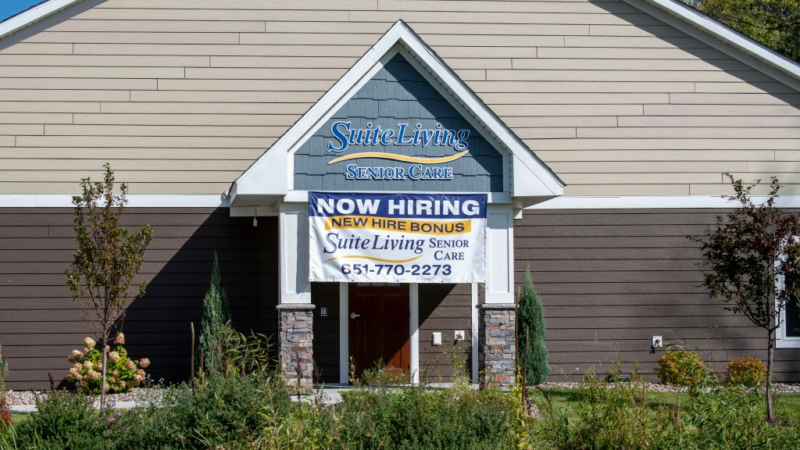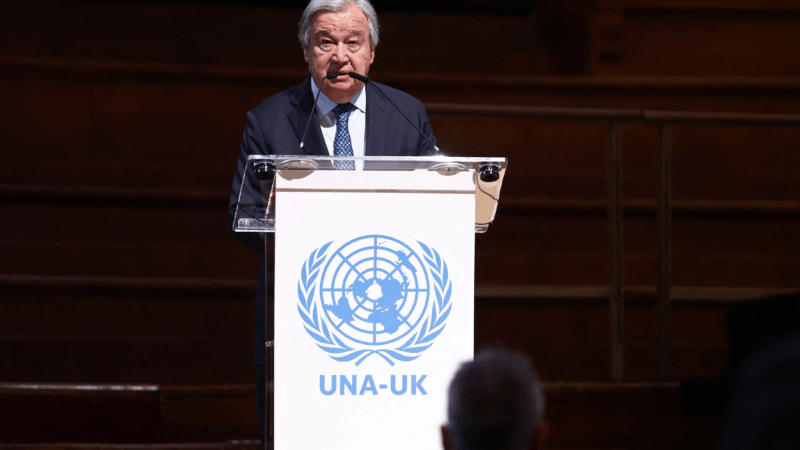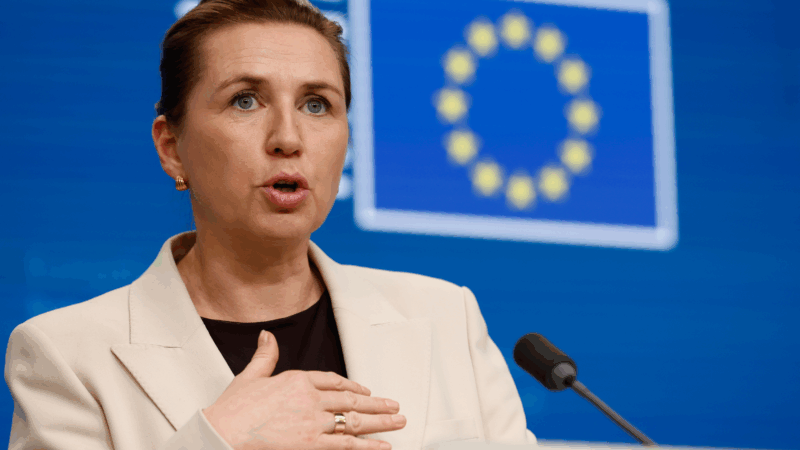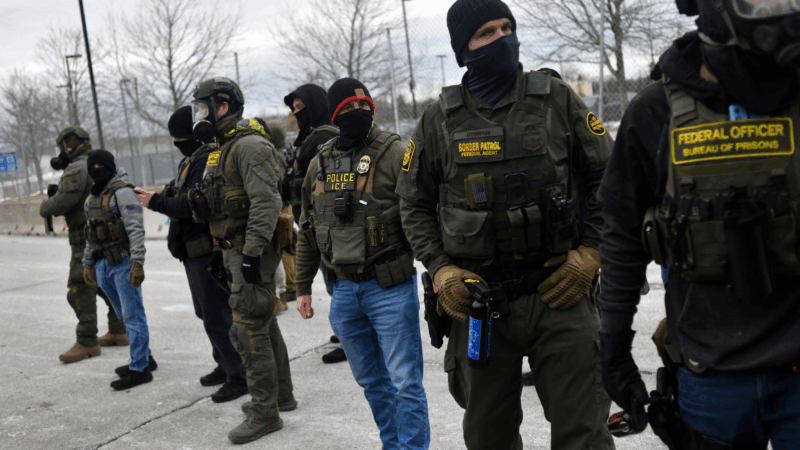How Trump’s immigration policies could worsen the health care worker shortage
More than 1 million noncitizen immigrants — one-third of them without legal status — work as doctors, nurses, nursing home aides and in other essential and increasingly hard-to-fill health care jobs in the U.S., a new analysis shows.
As a result, President Trump’s threatened mass deportations and tightened immigration restrictions, if carried out, could lead to bottlenecks, gridlock and compromised care throughout American hospitals, nursing homes and the entire health care system, warned Dr. Steffie Woolhandler, a Hunter College health policy professor and one of the authors of a research letter published last week in JAMA.
“We already have shortages,” she said. “If we start deporting or scaring away 1.1 million noncitizen health care workers, things will get much worse. And that’s going to affect the health care of all Americans.”
After analyzing 2024 U.S. Census data, Woolhandler and her colleagues estimated that nearly 17% of the health care workforce, or roughly 3.4 million workers, were born outside the U.S. More than 5% of health care workers were noncitizens, with about 700,000 who were here legally and more than 366,000 immigrants without legal status, researchers found.
Some regions of the U.S. rely particularly heavily on immigrants. Noncitizen immigrants comprised almost 13% of the health care workforce in New York, almost 10% in Florida and 9% in California, researchers estimated.
Nearly a quarter of physicians working in the U.S. were born elsewhere, and more than 6% are here legally but are not citizens. One, Dr. Rasha Alawieh, a kidney transplant specialist and professor at Brown University’s medical school, was refused reentry into the U.S. from her home country of Lebanon at Boston Logan International Airport in March. The Department of Homeland Security said it found evidence that Alawieh attended the funeral of Hassan Nasrallah, leader of Hezbollah, a political group that the U.S. has designated a terrorist organization.
That the U.S. deported the Yale-trained physician who possessed a valid visa “sent a chill down the spine of the entire foreign-born health care workforce,” Woolhandler said.
“People are feeling very afraid if they’re foreign born,” she said. “It’s not good for the health care system for everyone to be afraid all the time.”
Neither DHS nor the Department of Health and Human Services replied to a request for comment on this story.
The Trump administration has enacted a series of measures and threatened others to end legal protections for millions of U.S. immigrants, creating uncertainty not only for immigrants, but for their employers.
The administration suspended refugee resettlements and it revoked legal protections for hundreds of thousands of Cubans, Haitians, Nicaraguans and Venezuelans and ordered them deported later this month. In addition, uncertainty clouds the status of immigrants, including doctors and nurses, brought to the country illegally as children and who once received legal protection through the Deferred Action for Childhood Arrivals, or DACA, program.
Anti-immigration policies and practices are likely to prompt physicians and nurses from outside the U.S. to consider seeking work in more welcoming countries, said Woolhandler.
Janet Coffman, a health policy professor at the University of California, San Francisco agrees.
Filipinos, for example, make up 4% of the U.S. nursing workforce and 24% of the nurses who died from COVID-19.
“Maybe we will see more of them preferring to go to Canada than to the United States,” said Coffman, who was not involved with the new analysis.
“I think well-trained doctors who have good options elsewhere are going to be looking very hard and trying to go to other countries,” Woolhandler said.
With an aging population and a growing need for health care workers, the impact of Trump’s immigration policies could well add pressure to projected shortages of doctors as well as registered nurses, Coffman said.
Still, Coffman believes the most pressing problem likely to result from the immigration crackdown will be a shortage of aides to care for people in their homes and in nursing homes.
“These changes in immigration policy pose a very big challenge for home health and nursing homes, because of their reliance on immigrant labor,” Coffman said.
A 2024 survey from the American Health Care Association found that nearly half of nursing homes in the U.S. said they’ve had to limit new admissions because of staffing shortages. And researchers projected the need for an additional 800,000 home care workers over the next 10 years to care for older adults who want to remain in their homes.
“Even before President Trump was reelected, nursing homes and home health were struggling to recruit workers,” Coffman said. “These decisions, if they’re allowed to proceed, really will make it just that much more difficult … to care for some of the most vulnerable among us. These are seniors and younger people with disabilities, people who have multiple, complex health care needs.”
Woolhandler fears that the anti-immigrant climate will compound the impact on hospitals from health worker shortages, creating “bottlenecks.”
Hospitals won’t “be able to admit new people because they’re full with people who can’t leave the hospital because they have no place to go,” she said. “They don’t need to be in an acute-care hospital, but there’s not a nursing home bed for them. And Trump is doing things that are going to make the situation worse.”
High-speed trains collide after one derails in southern Spain, killing at least 21
The crash happened in Spain's Andalusia province. Officials fear the death toll may rise.
United Nations leaders bemoan global turmoil as the General Assembly turns 80
On Saturday, the UNGA celebrated its 80th birthday in London. Speakers including U.N. Secretary-General António Guterres addressed global uncertainty during the second term of President Trump.
Parts of Florida receive rare snowfall as freezing temperatures linger
Snow has fallen in Florida for the second year in a row.
European leaders warn Trump’s Greenland tariffs threaten ‘dangerous downward spiral’
In a joint statement, leaders of eight countries said they stand in "full solidarity" with Denmark and Greenland. Denmark's Prime Minister Mette Frederiksen added: "Europe will not be blackmailed."
Syrian government announces a ceasefire with the Kurdish-led Syrian Democratic Forces
Syria's new leaders, since toppling Bashar Assad in December 2024, have struggled to assert their full authority over the war-torn country.
U.S. military troops on standby for possible deployment to Minnesota
The move comes after President Trump again threatened to invoke the Insurrection Act to control ongoing protests over the immigration enforcement surge in Minneapolis.







